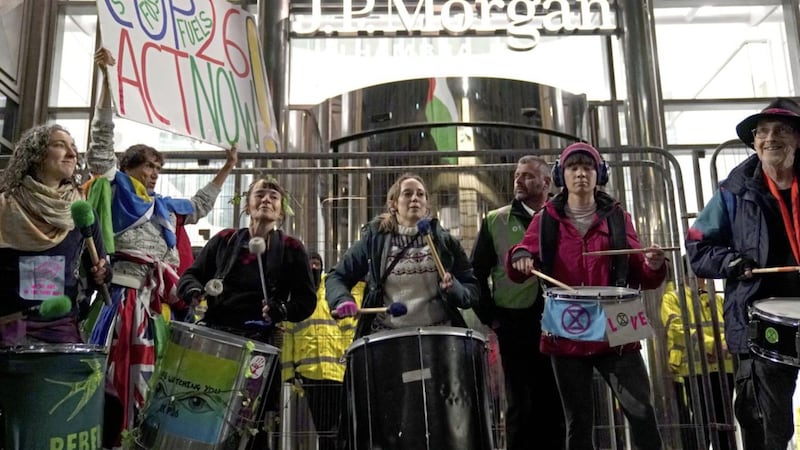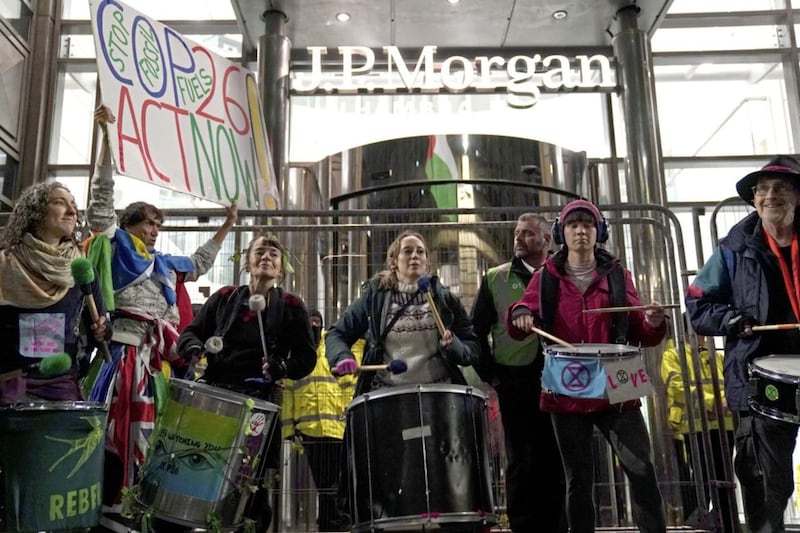WHEN we think of saving the world, our imagination might naturally conjure up images of cartoons or big screen superheroes defeating their arch-nemeses: Superman vs Lex Luther, or the Avengers vs Thanos.
However, as the saying goes, not all heroes wear capes.
When it comes to making the world a better place, helping to protect the planet from the effects of climate change is something we can all play a role in.
The recent COP26 summit in Glasgow helped to bring the importance of the environment into sharp focus.
While most of us are aware of the small lifestyle changes we can make to help the environment, from recycling, to reducing water usage and eating less meat, it is perhaps less obvious how we in the investment community can play our part.
Much of the attention at COP26 was focused on how governments plan to tackle climate change.
It also highlighted the importance of dealing with wider issues to help us build a sustainable future for the planet, such as clean drinking water, sanitation, reduced health inequalities, and clean affordable energy.
These are among the UN’s Sustainable Development Goals, many of which overlap so that working towards one will inevitably lead to improvements in others along the way.
One might wonder how investors can help to move the dial towards a more sustainable future.
One simple and obvious tactic is to sell down your investment in a company if you don’t think their goals align with achieving a sustainable future.
The threat of divestment can act as a powerful tool to drive change if a company is concerned about a sell-off.
However, a word of caution: this tactic must be deployed carefully. If you divest, you can no longer influence that company and promote positive change, and there’s always the risk that the person buying your shareholding is less concerned with the company’s sustainability objectives than you are.
Alternatively, remember that holding shares in a company can bring with it voting rights, giving shareholders a say.
If decisions are to be made around issues such as reducing the company’s carbon footprint, its gender equality objectives, or a potential merger with another company, ownership gives you a voice and the power to use it.
A great example of this working successfully is Climate Action 100+, a group of 615 investors who control $60 trillion in assets. They are focused on engaging with companies that cover over 80 per cent of global industrial emissions on three key areas: governance, reducing greenhouse gas emissions, and enhancing corporate disclosure.
These investors are able to co-ordinate their efforts to maximise the effectiveness of their engagements, and thereby use their position to drive positive change. The group’s interactions have led to a number of success stories around promoting climate action amongst companies in which they invest.
Another memorable example of shareholder influence was the 1999 takeover attempt of Manchester United. When news leaked of what looked like a done-deal to media giant Rupert Murdoch, there was an outcry by fans who were vehemently opposed.
A pressure group, Shareholders United Against Murdoch (SUAM), quickly established itself as an incisive, articulate critic of the deal. After a vocal campaign, the deal collapsed, and their success was celebrated as a victory for football fans (and shareholders) across the country who, in their eyes, had ‘saved the club’.
It could be concluded then, that investors, through stewardship and engagement, have the ability to positively change company behaviour. The emphasis is now shifting towards using this influence to help companies transition to a more sustainable footing.
This is a complex area that requires a depth of expertise on a broad range of topics, shareholder coordination, and resources in order to be effective. However, there is evidence that concerted investor efforts really can bear fruit.
So, even without a cape, it is possible to harness a little of your inner investment superhero to help shape the world of the future.
My favourite Avenger has always been the Hulk, but rather than bulging green muscles, I fear it’ll be cheeseboards, mince pies and general festive excess which will be testing the seams of my shirt as we enter the party season!
Mark Rooney is a Wealth Manager at Barclays Wealth and Investment Management team in Belfast.








